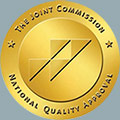Alcohol is a central nervous system depressant that works by slowing down vital functions in one’s body.
Alcoholism, also known as addiction to alcohol or alcohol use disorder (AUD), is listed in the Diagnostic and Statistical Manual of Mental Disorders, Fifth Edition (DSM-5) as a chronic brain disorder. The National Institute on Alcohol Abuse and Alcoholism (NIAAA) explains that “alcohol use disorder is a medical condition characterized by an impaired ability to stop or control alcohol use despite adverse social, occupational, or health consequences.” Alcohol was legalized in America in the 1930s, and since then there are many people who drink alcohol regularly, without any problems. However, there are also many individuals who suffer from alcohol abuse and addiction.
What Is Excessive Drinking?
Excessive alcohol abuse can lead to addiction. When referring to a certain number of drinks consumed, it implies one standard drink which, as provided by the National Institute on Alcohol Abuse and Alcoholism is:
- 12 ounces of regular beer (5% alcohol content)
- 8 – 9 ounces of malt liquor (7% alcohol content)
- 5 ounces of unfortified wine (12% alcohol content)
- 1.5 ounces of 80-proof hard liquor (40% alcohol content)
Excessive alcohol use, according to the Centers for Disease Control and Prevention (CDC) includes males drinking more than five alcoholic drinks within a two-hour period and females drinking more than four alcoholic beverages within a two-hour window.
Signs and Symptoms
The signs and symptoms exhibited by an individual struggling with alcohol addiction will be informed by several contributing factors (e.g., the amount of alcohol consumed, how quickly the alcohol is consumed, whether the individual mixes alcohol with other substances, one’s overall heath, etc.). Some of the common signs and symptoms that may be indicative of alcoholism could include, but are not limited to, any combination of the following examples, provided by the Mayo Clinic:
- Memory impairment
- Slurred speech
- Aggressive behaviors
- Poor coordination
- Dangerous and risky behaviors
- Increased tolerance to alcohol
- Liver damage
- Depression
- Headaches
- Diarrhea
- Vomiting
- Stomach aches
- Drowsiness
- Impaired judgment
- Blackouts
- Lack of inhabitations
Every individual is different and has the propensity to exhibit a somewhat unique set of signs and symptoms when it comes to alcohol addiction. The signs and symptoms of alcohol addiction may not be immediately evident, which can make them slightly more difficult to notice. Individuals that are addicted to alcohol will prioritize satisfying alcohol cravings above all else.
For Information and Support
Contemplating detox can be a very challenging time. Before any individual can begin to work on the underlying issues contributing to their substance abuse problem, they must be separated from the substances in their systems. If you are concerned for yourself or a loved one regarding substance abuse, and/ or addiction we recommend reaching out for help as soon as possible. The earlier you seek support, the sooner you and your loved ones can return to leading happy, healthy, and fulfilling lives. Sherwood Detox offers a stand-alone detox program. For additional information on detox, please do not hesitate to contact us at: 818-626-9959 or feel free to email us anytime. One of our trusted counselors is available to talk and discuss how we can best support you on your journey.









